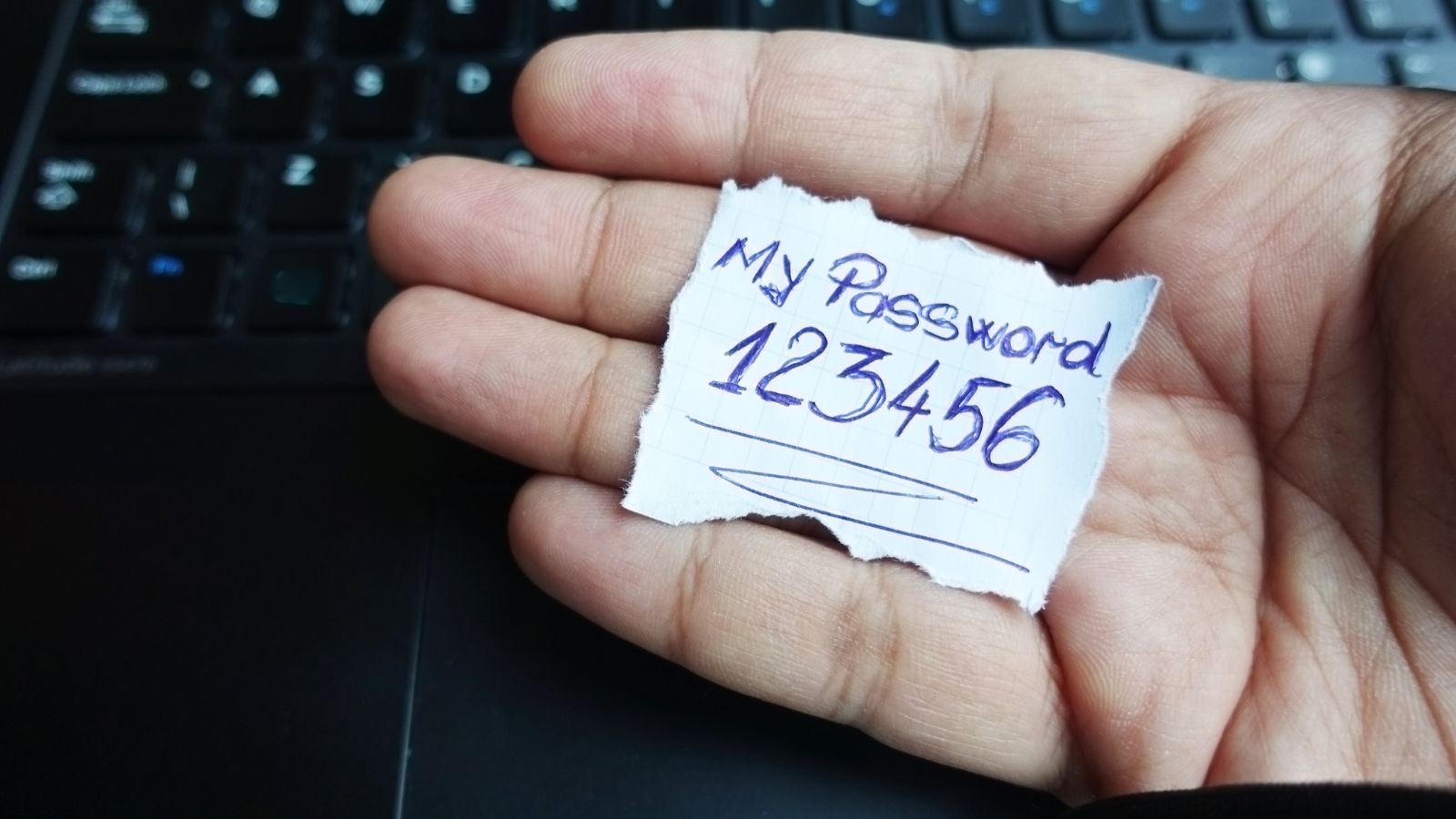Most personal details are meant to be kept close to your chest and should never be disclosed to others, as doing so could cause issues around your safety, security, or privacy. To keep yourself safe, make sure you always keep these 17 personal details to yourself!
Financial information

Hopefully, you already know this, but sharing your financial information with others is a terrible idea! You should never disclose your bank balance or card details as you don’t know who can be trusted with that information. YouGov says that Americans lost $10 billion to fraud in 2023 for this exact reason!
Intimate details about your love life

It’s called a private life for a reason, so there are certain details about your love life that you should avoid sharing. While it’s nice to share experiences with friends, it’s easy to overshare quickly, and there are some details you should hold back to protect the intimacy and trust of a relationship.
Personal passwords

Hackers continue to threaten our online accounts, and the best way to prevent yourself from becoming a victim is to never reveal personal passwords or login information! You don’t know who can be trusted with your passwords, and sharing access with someone else always carries a risk.
Family conflicts or private family matters

It’s never smart to air your family’s dirty laundry in public, and we don’t mean literally. Keeping family matters private helps to protect relationships and avoid unnecessary drama. Seeking opinions from outsiders will only exacerbate the situation, as no one will understand the family dynamics!
Medical history

Sometimes, sharing your medical history can be necessary, such as if your employer needs to know something about your health. However, the FBI points out that sharing this information with the wrong people could lead you to become a victim of medical fraud, such as bills for fake medical services.
Health insurance details

Another prominent form of medical fraud is health insurance theft. With the cost of healthcare in the US sky high, using another person’s insurance is an illegal way to avoid the costs. So, protect your health insurance information in the same way you would protect cash or credit card details!
Plans for major purchases

Disclosing plans for major purchases can open you up to exploitation or unwanted solicitation, which no one wants! Knowing that you have a large chunk of cash or credit at your disposal can attract telemarketers, unsolicited sales representatives, or worse, all looking to cash in.
Detailed travel plans

For personal protection, you should always keep your location to yourself, but unfortunately, that’s hard to achieve with ‘location tags’ on social media these days. Stay away from these features; they’re an invasion of your privacy, and sharing your whereabouts opens you up as a victim to all sorts of criminal opportunities.
Social Security number

Your social security number is a unique number assigned to you at birth; it’s one of the most important pieces of information you own, so keep it private! Only share it when absolutely necessary to avoid identity theft, which, according to the Social Security Administration, is one of the fastest-growing crimes in America.
Private conversations

When seeking advice, people may share information with you that they don’t want to be passed around. You would expect this person to keep it to themselves, so you should reciprocate. Never share conversations that someone shared with you in confidence, as this will only break trust and potentially ruin your relationship.
Personal trauma

Not everyone needs to know everything about your life, and you have no need to share things you’re uncomfortable with. Although it’s important to discuss trauma in order to heal it, this is best left to the professionals and confined to therapy. If it doesn’t feel right, don’t feel pressure to share it.
Insecurities and vulnerabilities

These days, we all have our walls up, and there is a major need for people to be more vulnerable. However, any insecurities that could be used against you should be kept to yourself; never provide people with ammunition they could use, as this a relatively unknown albeit major form of self-sabotage.
Life goals

Unfortunately, not everyone is supportive, and this extends to some friends and family, meaning that sharing your life goals can give rise to negativity in response. Once you achieve your goals, you should certainly celebrate them, but research has shown that the best way to achieve big goals is to keep them private.
Your finances

Once you have acquired a certain level of wealth, it can be difficult to trust that people have the best intentions. Unfortunately, many people will use others for financial gain, and many relationships are corrupted by money. The easiest way to avoid this problem is simple: keep your finances private!
Therapy sessions

Therapists are under strict oath to never disclose information shared in sessions, and usually, you should do the same. There are obviously exceptions, as you may want to discuss your therapy with your spouse or family, but Verywell Mind advises you to carefully consider your motives before doing so.
Past regrets

There are some relationships where detailing your past is important, but most relationships don’t require you to dive deep into your history. Digging up the past usually doesn’t help you or the person you’re sharing with, and they don’t define you, so keep them to yourself unless your judgment says otherwise.
Legal matters

Last but not least, if you ever find yourself involved in a legal matter, keep the details to yourself! Legalities are confidential, and sharing information could impact the proceedings. You shouldn’t say anything on the matter until it is over, with the exception, of course, of your lawyer!
Up Next: 20 Seriously Stunning Natural Wonders Across America

Geological wonders, diverse ecosystems, and impressive waterfalls—the U.S. is home to a huge range of breathtaking landscapes and natural wonders across its many national parks and attractions. Head to these 20 locations for true natural beauty and never-ending adventure opportunities.
20 Seriously Stunning Natural Wonders Across America
17 Places That Undercover Cops Will Always Monitor

While it isn’t always obvious, undercover cops play a crucial role in maintaining public safety. They blend into the background in various locations, carefully observing and acting to prevent crime. In this article, we’ll reveal 17 places where you’re likely to find undercover cops—though you can bet you won’t see them!
17 Places That Undercover Cops Will Always Monitor
17 Things You’re Just Too Old To Be Doing Anymore

The older you get, the more fragile you are physically and mentally, so it’s important to prioritize your well-being every day. Whether you still feel young at 50 or are closer to 80, we’ve compiled 17 things you’re too old to be doing anymore.

